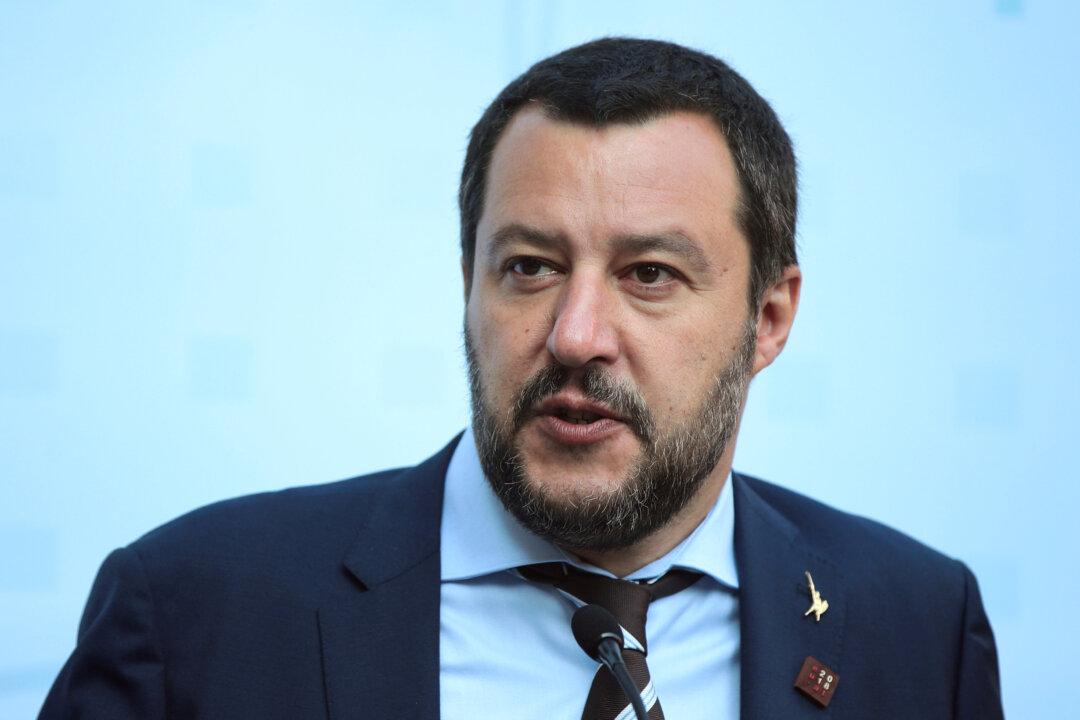Italy has passed a new law that tightens the criteria for granting asylum to those fleeing war and political persecution.
A wide majority of lawmakers voted in favor of the new security and immigration law on Nov. 28, handing conservative Interior Minister Matteo Salvini his first major legislative win.





